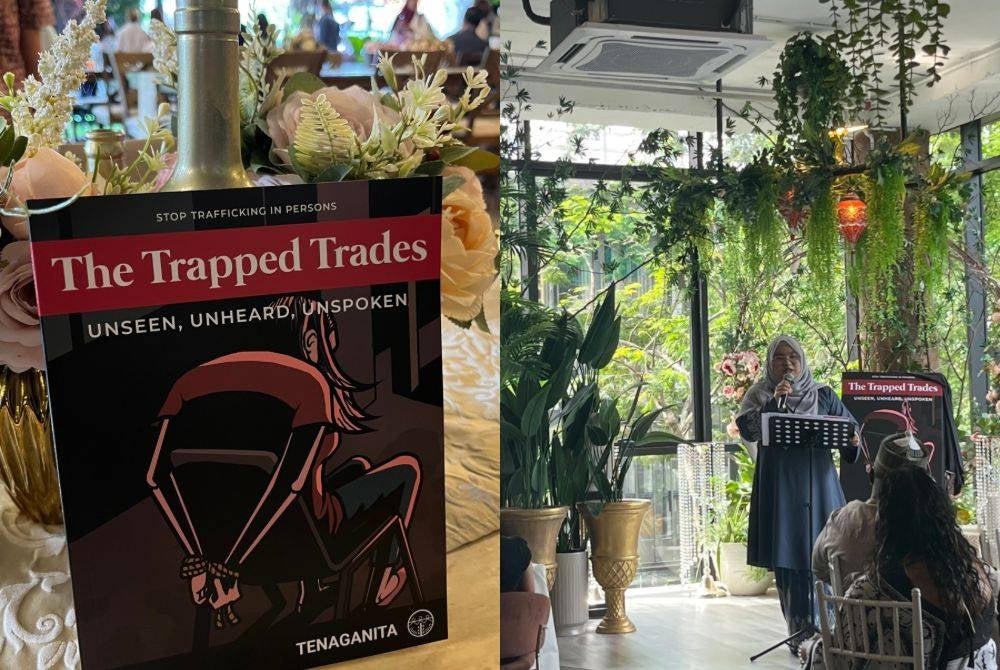Tenaganita delves deep into human trafficking issues in its newly launched book

KUALA LUMPUR - Tenaganita, a leading organisation dedicated to combating human trafficking, has released its highly anticipated fourth publication, "The Trapped Trades: Unseen, Unheard and Unspoken.
This publication features five compelling stories that delve into the different forms of human trafficking, including sex trafficking, scamming, baby selling, organ harvesting, and child marriage.
Anti-Trafficking in Persons (ATIP) Project Lead Alya Zulaikha said this book is the fourth series of their "Stop Trafficking in Persons" publication, after "The Revolving Door", "The Global Catch," and "The Unrecognised," which focus on the trafficking of refugees at the Malaysian-Thai borders, fishing sector, and domestic work sector, respectively.
"Over the past three decades, Tenaganita has encountered diverse cases of human trafficking, each unique in its complexity.
"The modus operandi of traffickers has become more sophisticated and coordinated, posing challenges for prosecution and conviction," Alya said.
She said, however, that the winding web of operations makes victims more accessible and susceptible to manipulation.
Human trafficking, like the layers of an onion, conceals horrors beneath a seemingly harmless surface, encompassing forced migration, displacement, marginalisation, inequality, and sexual gender-based violence, Alya added.
In a world where the voices of victims often go unheard and unspoken and their stories remain unseen, "The Trapped Trades" aimed to bring attention to the harrowing journeys of individuals who have fallen victim to exploitation.
"Through gripping narratives based on interviews with case workers and counter-trafficking activists through the eyes of the survivors, it exposes the arbitrary and unforeseen ways normal lives can be turned upside down.
"Apart from raising awareness about the escalating issue of human trafficking, "The Trapped Trades" seeks to convey that, regardless of background or intersectionality, everyone is susceptible to becoming a victim.
"It further exposes how human beings become commodities through buying and selling," she added.
She said, therefore, that the complex problems that entail the question of human trafficking are tied to our daily lives in ways that are often hidden from plain sight.
As such, Alya said Tenaganita's purpose was rooted in breaking the self-reinforcing cycles that support trafficking.
In "Trapped Trades," the writings take readers through the arbitrary and unforeseen ways that normal lives can be turned upside down and are held under a spotlight.
There were insights on the impact of trafficking as it reverberates throughout the region and beyond, extending beyond the severe emotional and physical effects on trafficked persons and the disarraying of family bonds and relationships.
Commenting further, Tenaganita hoped the book would offer readers a glimpse into the stark truths surrounding human trafficking and inspire action against this heinous crime.











